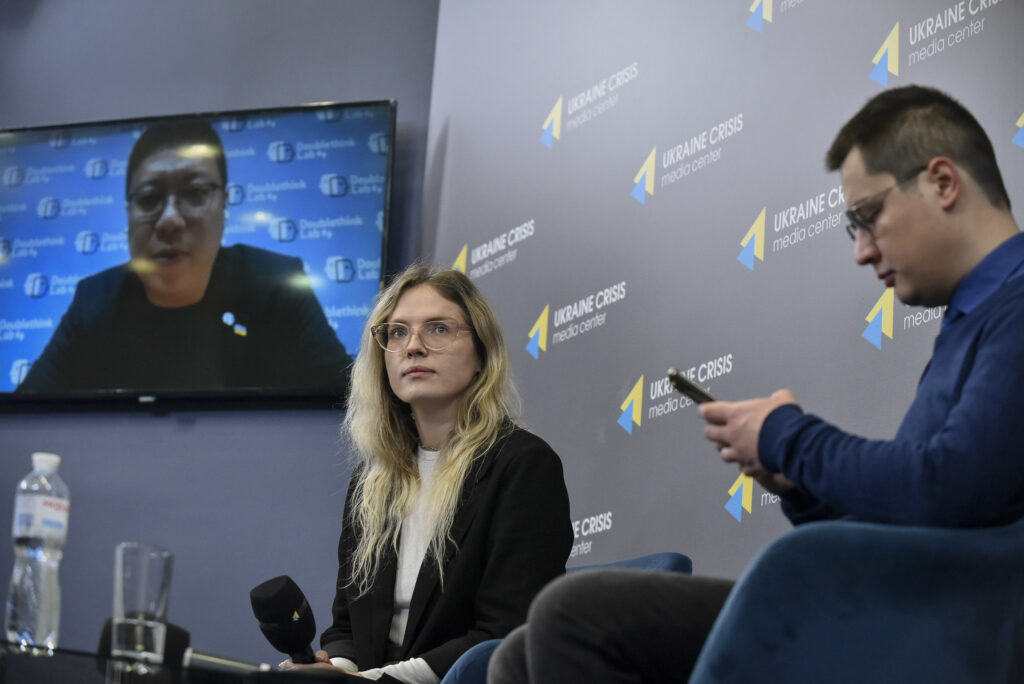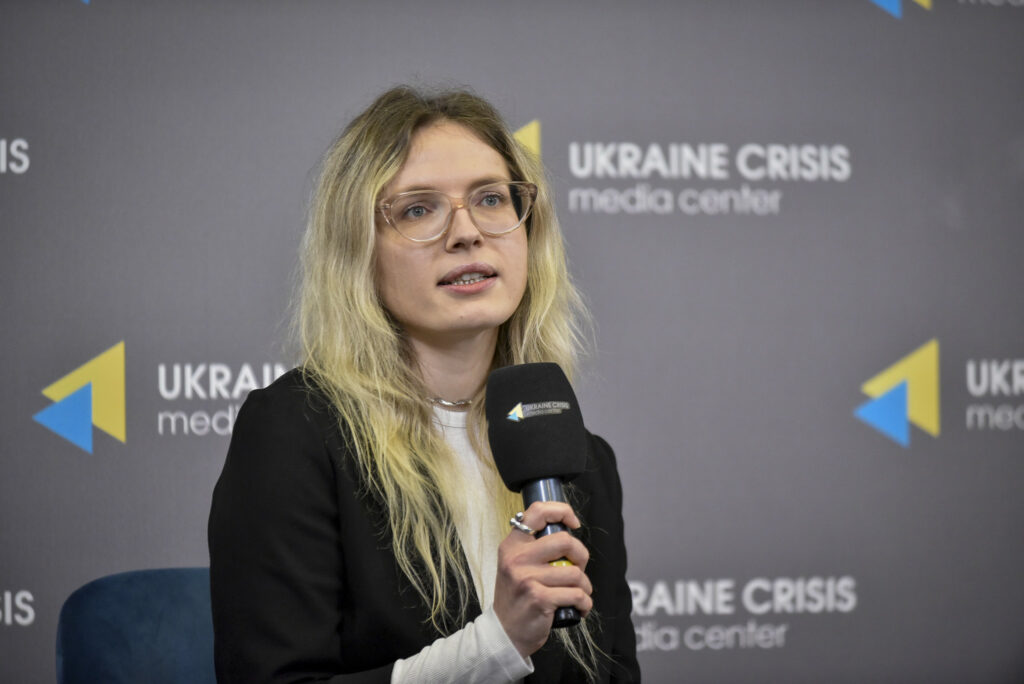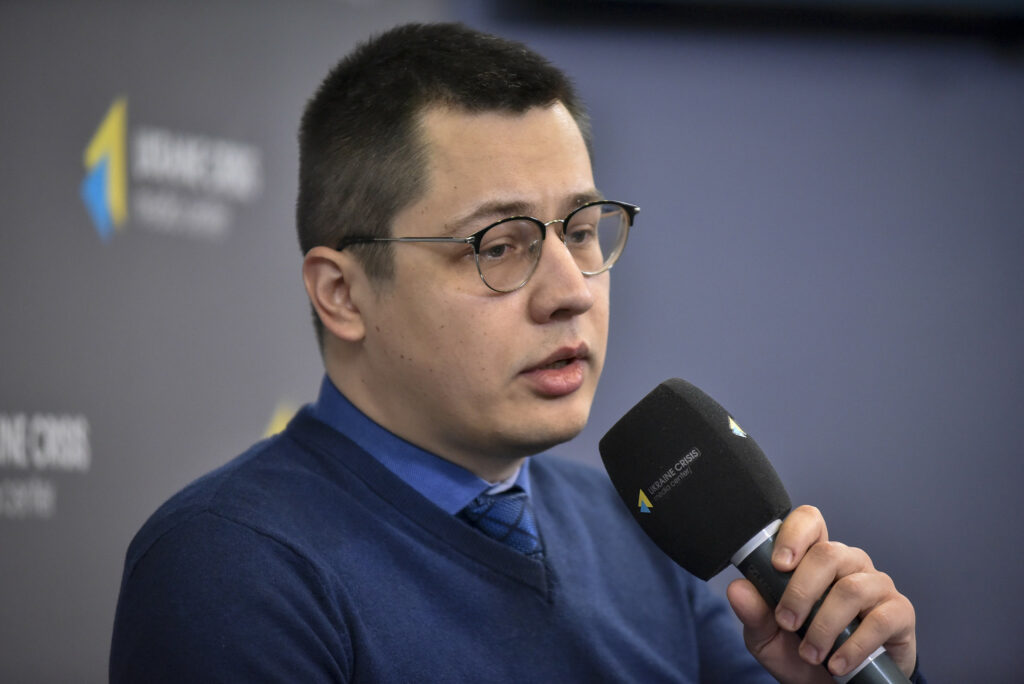Ukraine Crisis Media Center hosted a public discussion “Ukraine-Taiwan: exploring experiences in countering disinformation”, during which experts from both sides discussed the research findings and concluded that joint efforts in countering authoritarian propaganda will be more useful in the information protection of society .
In his address to the panelists, Wu Min-Hsuan (Ttcat), CEO OF Doublethink Lab, noted that since the outbreak of the full-scale war in Ukraine, not only Russian, but also Chinese propaganda has been playing a powerful role.
“Governments of authoritarian countries learn from each other and help each other. It is important for us as democracies to actively work together to hold accountable those who spread these narratives and to counter such narratives,” he emphasized.
Levi Bochantin, Social Engagement Researcher at Doublethink Lab, presented the findings of the Doublethink Lab study of Russian Telegram’s coverage of the Taiwan elections.
He outlined several key narratives used in this track. A typical narrative is Americans vs. Chinese. The USA was shown as a provocateur, an aggressor country that provokes wars everywhere, and the victory of one of the parties was presented as a military victory of the USA.
The third narrative the speaker focused on questioned the democratic nature of Taiwan’s elections. The expert also noted that Russia is actually becoming an accomplice of the Chinese Communist Party and their regime of its own free will.
“Taiwan is shown as a hostage between two world powers. That sovereignty is not real. That China or the US is pulling the strings, and no one even mentions the fact that we have three Taiwanese parties, not Chinese or American,” said Levi Bochantin.
According to him, they constantly compare Ukraine to Taiwan. And they constantly emphasize that the USA played its role in provoking the conflict in both Ukraine and Taiwan.
Another study was presented by Anton Tarasyuk, Co-Founder and Expertise Lead at Mantis Analytics. He said that the researchers focused on the narrative of US biolabs in Ukraine, analyzed about 100,000 content items on Telegram starting in February 2022, and used artificial intelligence to select 10 main narratives that revolved around this campaign.
“In February – March, a powerful campaign was observed. It peaked during the seizure of Mariupol, because Russia was actively promoting this narrative to explain what they were doing. Then the campaign declined. Analyzing the Chinese Internet, we also found this narrative, albeit in relation to Taiwan,” Anton Tarasyuk shared one of the conclusions.
According to Puma Shen, the legislator, associate professor at the National Taipei University and member of the board of Doublethink Lab, there is a lot of disinformation about Ukraine in the information environment of Taiwan. It is disseminated by China, which, together with the Russian Federation, knows how to choose the battlefield.
“Besides, they are confident that they will be able to destroy us, since we are alone and do not cooperate with anyone. Therefore, civil society should be involved. Unfortunately, there is no official platform or initiative launched by the government for this purpose. Therefore, it is necessary to think about how to launch a platform at the level of civil society. This requires adequate funds, personnel, resources, and infrastructure,” the speaker stressed.
In this regard, invited researcher of the Institute for National Defense and Security Research, MERICS researcher Yuriy Poita admitted that Ukrainian NGOs and think tanks have the potential to help Taiwan in the fight against Chinese disinformation, and Taiwanese fact-checkers have already contacted Ukrainian colleagues about this.
“Ukraine cannot actually overcome the challenge in the information sphere. On the other hand, this is good news, because it shows us how we should act,” said Volodymyr Solovyan, Ph.D., head of the Hybrid Warfare Analytical Group of the Ukraine Crisis Media Center.
In his opinion, Ukrainians should cooperate with those analytical centers and civil societies of Southeast Asia, including Taiwan, which understand the danger of Chinese propaganda.
“We all understand that propaganda is a global challenge rather than a problem of only one country or region. If we don’t fight Chinese propaganda, we won’t be able to fight Russian propaganda,” Volodymyr Solovyan stressed.





